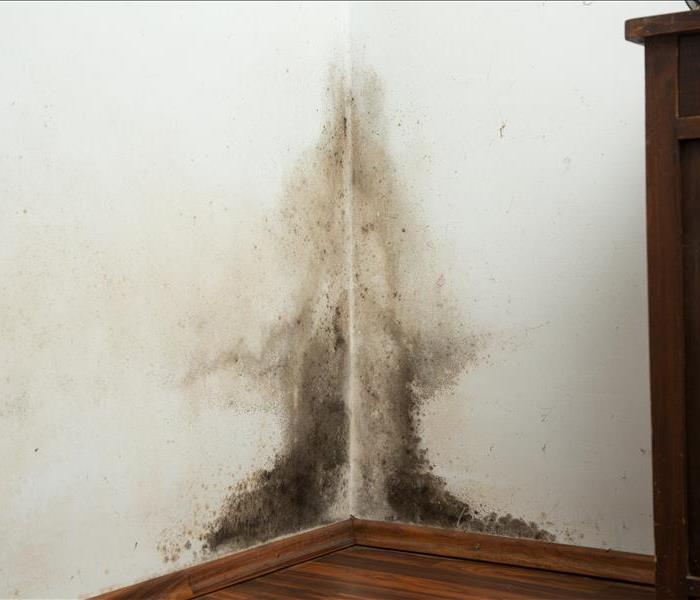How Does Mold Grow in HVAC Systems?
10/24/2023 (Permalink)
In this blog post, we'll explore an important topic that homeowners should be aware of: how mold can grow in HVAC (Heating, Ventilation, and Air Conditioning) systems. Understanding the factors that contribute to mold growth in HVAC systems is the first step in preventing this common issue.
Understanding HVAC Systems
HVAC systems are designed to regulate indoor temperature and air quality. While they play a crucial role in keeping your home comfortable, they can also become a breeding ground for mold under certain conditions.
How Does Mold Develop in HVAC Systems?
Moisture is the primary catalyst for mold growth, and HVAC systems can provide a conducive environment. When humidity levels are high, or if there's a leak or condensation within the system, moisture can accumulate.
HVAC systems have air filters that trap dust and debris. Over time, these filters can become clogged, creating a damp surface where mold spores can settle and thrive. Neglecting regular HVAC system maintenance can lead to mold problems. Dirty coils, ducts, and air handlers can provide the organic material and moisture necessary for mold growth. Inadequate ventilation in your home can also contribute to stagnant air within the HVAC system, which can create an ideal environment for mold growth.
How to Prevent Mold Growth in HVAC Systems
Schedule annual HVAC system inspections and maintenance to ensure that all components are clean and functioning properly. This includes cleaning coils, ducts, and changing air filters.
Keep indoor humidity levels below 50% to discourage mold growth. Use a hygrometer to measure humidity and consider using a dehumidifier if necessary. It is also important to replace air filters regularly, following the manufacturer's recommendations. This will not only improve air quality but also reduce the risk of mold growth. Lastly, ensure that your home has adequate ventilation to keep air circulating and prevent stagnant conditions within the HVAC system.
Mold growth in HVAC systems is a common concern for homeowners, but with proper maintenance and attention to humidity levels, it can be prevented. Regular HVAC system inspections and a focus on controlling moisture are key to keeping your HVAC system mold-free.
If you suspect mold growth in your HVAC system or are facing mold issues in your home, don't hesitate to contact SERVPRO® of Northeast Tucson, Oro Valley/Marana East for professional mold remediation and cleanup services. Our experienced team is ready to help you maintain a safe and comfortable living environment.

 24/7 Emergency Service
24/7 Emergency Service
